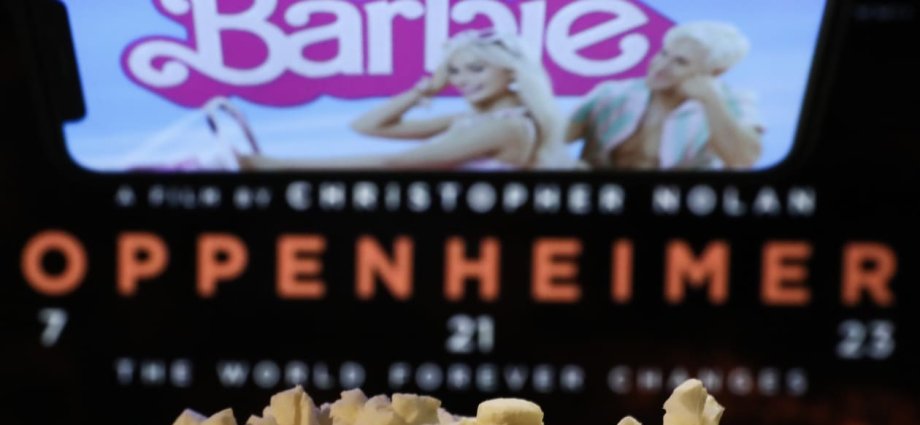“Barbie” and “Oppenheimer” couldn’t be more different. Yet when it emerged that both films would be released on the same day – 21 July – what initially seemed like a major clash “spawned a portmanteau name”.
“This is the summer of Barbenheimer,” wrote Nicholas Barber for BBC Culture, and the two blockbusters are as closely linked as “two celebrities in a tabloid-friendly relationship”. It became an “extraordinary, if largely accidental, marketing coup” that has propelled both films and encouraged those who may have seen one or the other to see both.
Four days before the films’ release, around 40,000 people had bought tickets to see both movies on the same day at AMC cinemas in the US, said Variety. Since their release, the films have collectively grossed nearly $2 billion globally, according to The Economic Times.
While the film industry has still been “in recovery from the darkest days of the pandemic”, as The Guardian’s Benjamin Lee wrote, Barbenheimer’s box office success has led to claims the phenomenon “saved the summer box office”.
‘The audience was there, it just needed a reason to show up’
The joint releases of “Barbie” and “Oppenheimer” shows that “cinema remains as relevant as ever”, Alex Scrimgeour, CEO of cinema chain Everyman, told the Evening Standard.
Everyman’s profits for the first half of 2023 had fallen by 22.7% over the same period last year. Things “picked up” in July, which Scrimgeour said “demonstrates… the value of original content”.
Before the opening weekend, ticket sales had been down 20% compared with the same point in 2019, said Lee in The Guardian. Analysts “couldn’t have predicted just what a win [Barbenheimer] was going to be”. The success of movies like “The Fabelmans”, “Women Talking” and “Cocaine Bear” showed that even when the box office “might be down… it wasn’t out”.
The audience “was there, it just needed a reason to show up”, Lee added. Barbenheimer’s “over-performing” domestic debut was also “an important sign to studios” that audiences will come out to watch films that “prioritize words over action”. With “Barbie” and “Oppenheimer” scoring Rotten Tomatoes ratings of 91% and 94%, he noted, they also simply “did well because people like them”.
‘The film industry needs to innovate – and fast’
If it takes a “meme as unique and absurd as Barbenheimer” to bring audiences into cinemas, said Barber for the BBC, then “what does it say about the movie business”?
The Barbenheimer discourse, he added, “starts to sound desperate” as it’s a “sign that Hollywood isn’t offering much else to look forward to this summer”. With “precious little left to get audiences queuing” until the likes of “Dune Part 2” and “The Marvels” are released in November, he added that it’s “like an invitation to one last party before the fasting begins”.
The idea that Barbenheimer has saved cinema is “far from the truth”, added Ellen Peirson-Hagger in The New Statesman, with headlines claiming as much “wildly exaggerating the impact” of the two films. Despite commercial success, cinema owners “remain sceptical about any long-term impact the films may have”.
“The crisis is real,” added Peirson-Hagger, with both Cineworld and Empire in administration, and Odeon closing branches, for example. While the success of Barbenheimer shows there’s still “massive appetite to watch films together”, said Jake Garriock, Curzon’s head of distribution strategy and group publicity, in The New Statesman, “it doesn’t mean business has returned to normal”.
Recent figures also show “the industry is not good at keeping up with changing audience tastes”. Interest in superhero films is “waning”, Peirson-Hagger said, but Hollywood “continues to produce them”. To save cinemas, “the film industry needs to innovate – and fast”.











